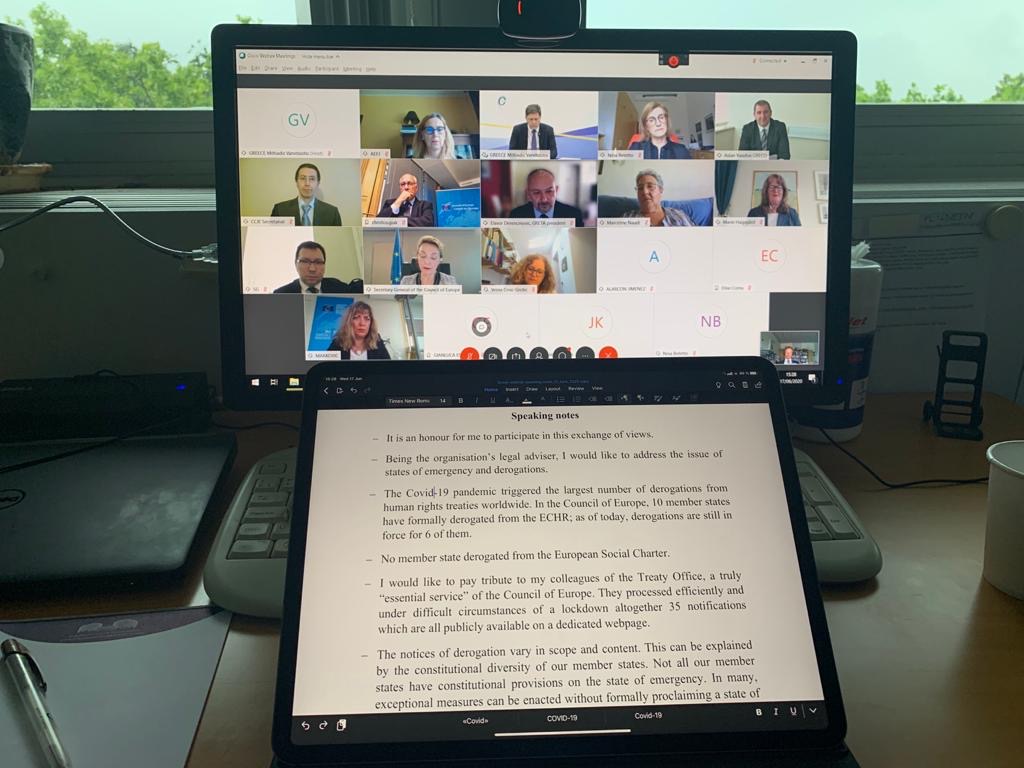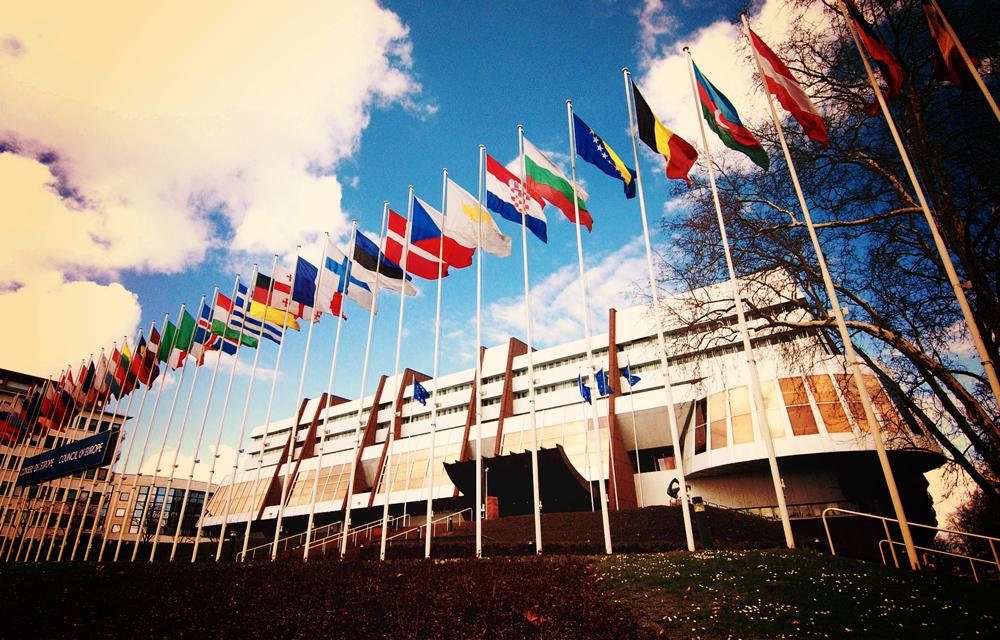Please click here to watch the conference (Mr Polakiewicz's contribution starts after 38 minutes)
Speaking notes
- It is an honour for me to participate in this exchange of views.
- Being the organisation’s legal adviser, I would like to address the issue of states of emergency and derogations.
- The Covid-19 pandemic triggered the largest number of derogations from human rights treaties worldwide. In the Council of Europe, 10 member states have formally derogated from the ECHR; as of today, derogations are still in force for 6 of them.
- As we speak, we received a prolongation of the state of emergency by Northern Macedonia until 22 June.
- No member state derogated from the European Social Charter.
- I would like to pay tribute to my colleagues of the Treaty Office, a truly “essential service” of the Council of Europe. They processed efficiently and under difficult circumstances of a lockdown so far altogether 35 notifications which are all publicly available on a dedicated webpage.
- The notices of derogation vary in scope and content. This can be explained by the constitutional diversity of our member states. Not all our member states have constitutional provisions on the state of emergency. In many, exceptional measures can be enacted without formally proclaiming a state of emergency.
- Most states derogated from the same human rights, namely freedom of assembly and association, right to respect for private and family life, freedom of movement and right to education. Interestingly, a few also derogated from the right to liberty and only one from the right to a fair trial.
- Some did not mention any specific rights. Their notices simply stated that the measures taken “involve” or even “may involve” derogations from the obligations under the Convention. While it is certainly preferable, for reasons of legal certainty, to indicate precise provisions of the Convention and the extent to which derogation is sought, this practice is not objectionable as such. Already in the famous “Greek case”, the then European Commission of Human Rights declared in 1969 that the articles of the Convention affected by the derogation can be indicated indirectly, through submission of the relevant legislation, a finding that the ECtHR confirmed in several cases.
- What is essential is that emergency measures meet the conditions of proportionality. States may only derogate “to the extent strictly required by the exigencies of the situation.”
Necessity of derogations
- According to Carl Schmitt, “sovereign is he who decides on the exception.” This famous maxim, formulated in respect of the use of emergency decrees under the Weimar constitution, has probably forever tainted the debate on emergency powers.
- While today’s context is very different, the unprecedented use of emergency powers during the pandemic prompted a debate on the necessity for derogations.
- Some argue that ECHR rights, and in particular the regular limitations grounds included in most of them, are sufficiently flexible to accommodate such measures in response to the Covid-19 crisis.
- Others consider that derogations were necessary, in particular in order to allow for the far-reaching lockdown measures that were effectively adopted all over Europe, making for example peaceful assemblies temporarily impossible.
- A situation in which emergency powers are conferred via ordinary legal norms implies the risk of such powers becoming permanent, “making the law”. It is argued that courts, including the ECtHR, may construct the ordinary limitation grounds in an expansive manner.
- In my view, both points of view, for and against derogations, have their merits.
- In any case, article 15 ECHR is not a lawless zone; the possibility for states to derogate is an important feature of the Convention system, permitting the continued application of the supervisory machinery even in the most critical times. Derogations entail an obligation to keep the Secretary General informed about the measures taken which in turn allows supervision by the Committee of Ministers and the Parliamentary Assembly.
Final remarks
- To conclude, I would argue that the likelihood of abuse of power is no more or less likely depending on whether you declare a state of emergency and derogate or whether, instead, you rely on ordinary legislation and regular restriction clauses.
- Of course, as also the Venice Commission has emphasised, “framing ordinary legislation on infectious diseases so flexibly as to be able to cover all the possible measures necessary to deal with a pandemic carries the danger of bringing about a long lasting or even permanent emergency” (‘Respect for Democracy Human Rights and the Rule of Law-During States of Emergency-Reflections’ CDL-P(2020)005Rev, para 33).
- At the end of the day, what matters most are accountability, transparency as well as effective checks and balances. The basic building-blocks of a democracy - a parliament, the judiciary and the media - must be able to carry out their essential functions even during a crisis.
- When governments restrict our rights, they remain subject to the rule of law. Individuals affected by emergency measures must retain the right of access to the courts. It is for that reason that I was concerned to see rather far-reaching suspension of court proceedings in some countries. If there is one profession which can effectively work remotely from home, it is lawyers.
- Protection of the right to life may also entail obligations to cooperate effectively between authorities of different member states. The fact that hospitals in Germany and Luxembourg accepted Corona patients from France or Italy was probably one of the finest expressions of European solidarity. In this sense, we should consider building on ECHR case law that was developed in a very different context. In the case of Güzelyurtlu and others v. Cyprus and Turkey, the Court developed on the basis of article 2 ECHR a duty to cooperate effectively with a view to elucidating the circumstances of a killing and to bringing the perpetrators to justice.
- Human rights express solidarity. As the UN Secretary-General formulated it so pertinently, “Covid-19 and human rights - We are all in this together”.
- Thank you for your attention.




